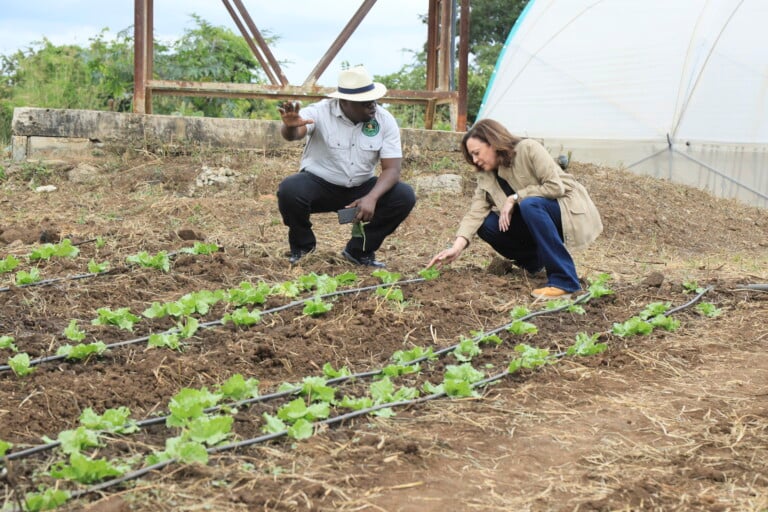
On April 1, 2023, U.S. Vice President Kamala Harris visited Panuka Farms outside Lusaka, Zambia, to witness first-hand how the farm is using new techniques and technology to boost its vegetable crop as a way to secure food supplies in an age of global warming. During her visit, she walked past rows of peppers and inspected a drip irrigation system, commenting that it was an example of what could be done around the world.
The focus in Africa is on expanding access to food, unlike in the United States, where conversations about climate change usually revolve around replacing fossil fuels with clean energy. Rising food prices stemming from the Russian invasion of Ukraine have been damaging to poor countries, and global warming is expected to bring more challenges in the coming years. Hunger can also create instability, leading to migration and conflict.
“The connection between these issues is quite clear,” Harris said.
To help Africa prepare for the effects of climate change, Harris is pushing for $7 billion in private-sector investments, mostly to boost conservation and improve food production. The politics of climate change are complicated in Africa, which has contributed far less to overall greenhouse gas emissions than richer corners of the world such as the United States. According to the International Energy Agency, 43% of Africans didn’t have access to electricity in 2021, and recent outages have caused frustration.
In Ghana, Harris was questioned at a news conference about how the West can demand that Africa go green and forgo using its natural resources. She was also pressed on whether wealthy nations would supply $100 billion annually to help poor countries cope with climate change, a commitment made under the Paris climate accord. Harris said it is “critically important that, as global leaders, we all speak truth about the disparities that exist in terms of cause and effect and that we address those disparities.” She said there were opportunities in the “clean energy economy” that could help generate growth in Africa.
As for the money, President Joe Biden has requested $11 billion in his proposed budget to meet its international commitments. “We are waiting for Congress to do its work,” Harris said.
Climate change is a pressing issue that affects the entire planet. With the world’s population expected to reach 9.7 billion by 2050, food production will need to increase by 70% to meet the growing demand. However, climate change is already having an impact on food production, with droughts, floods, and other extreme weather events affecting crop yields.
To address these challenges, it is essential to find new ways to produce food that are more resilient to the effects of climate change. This is where new techniques and technology come in. Drip irrigation, for example, is a technique that allows farmers to water their crops more efficiently, using less water overall. This is especially important in regions where water is scarce. Other techniques, such as intercropping and crop rotation, can help to improve soil health and reduce the need for synthetic fertilizers and pesticides.
There are also opportunities to improve food production through the use of technology. For example, precision agriculture uses sensors, drones, and other tools to monitor crops and optimize growing conditions. This can help to reduce waste and increase yields. In addition, genetic engineering and biotechnology can be used to create crops that are more resilient to the effects of climate change, such as drought-tolerant varieties.
However, these solutions are not without their challenges. For example, there are concerns about the safety of genetically modified organisms (GMOs) and the potential impact they may have on the environment. In addition, there are questions about who will benefit from these technologies and whether they will be accessible to small-scale farmers in developing countries.


















